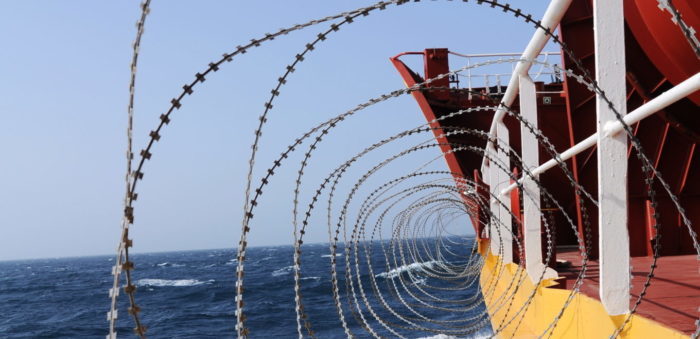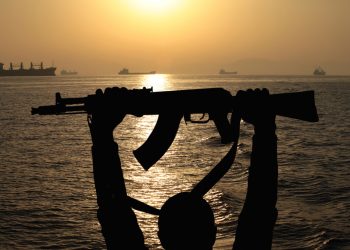The UN Office for Drugs and Crime (UNODC) applauds Nigeria on its efforts of tackling maritime piracy and smuggling of rdugs by passing an antipiracy law to confront the problem in the country’s waters.
Specifically, the Suppression of Piracy and other Maritime Offences Act 2019 was issued in June 2019 by President Muhammadu Buhari, making Nigeria the first country in West and Central Africa to have a standalone antipiracy law. The Nigerian Maritime Administration and Safety Agency (NIMASA) facilitated the drafting of the Suppression of Piracy and other Maritime Offences Bill in 2012, in collaboration with the International Maritime Organisation (IMO).
[smlsubform prepend=”GET THE SAFETY4SEA IN YOUR INBOX!” showname=false emailtxt=”” emailholder=”Enter your email address” showsubmit=true submittxt=”Submit” jsthanks=false thankyou=”Thank you for subscribing to our mailing list”]
During a press briefing, Chairman, Ship Owners Forum, Mrs. Margaret Orakwusi, bemoaned the issue of illegal fishing on Nigerian waters, saying appropriate measures must be applied to stop this for the interest of the shipping industry.
In the meantime, the representative of the UNODC Country Director for Nigeria, Mr. Oliver Stolpe highlighted the antipiracy act passed by the Nigerian government was a great move, as for the first time the country provides a comprehensive framework to tackle the issue of piracy and, more broadly, maritime crimes.
The big issue now is the follow up to that, which is the prosecutions.
Stolpe added that one of the most major challenges in the Gulf of Guinea is the extremely ‘fragmented’ nature of the legal framework regulating the maritime domain, given that there are gaps in the existing terms of the countries signing on to the conventions and actually putting them into domestic legislations and policies.
Also, he added that the Gulf of Guinea poses many challenges to those passing through, since many are the incidents reported every year. Recently, the UN issued a study according to which Nigeria lost approximately $2.8 billion during 2018, as a result of crude oil and maritime crimes.
In light of piracy and maritime crime, Stolpe advised countries to apply the United Nations Convention Against Illicit Traffic in Narcotic Drugs and Psychotropic Substances.
In the meantime, Mrs. Margaret Orakwusi commented that
We should also watch what the financial institutions are doing, how monies are transferred from one country to another – proceeds of the crime of illegal fishing – and again monitor the markets. Where are they selling these products? One good thing with ocean resources, a prawn can tell its own story, where is it caught. It is just a little analysis and you will get all the information. So that, to me, is an effective way of monitoring illegal fishing.






























































